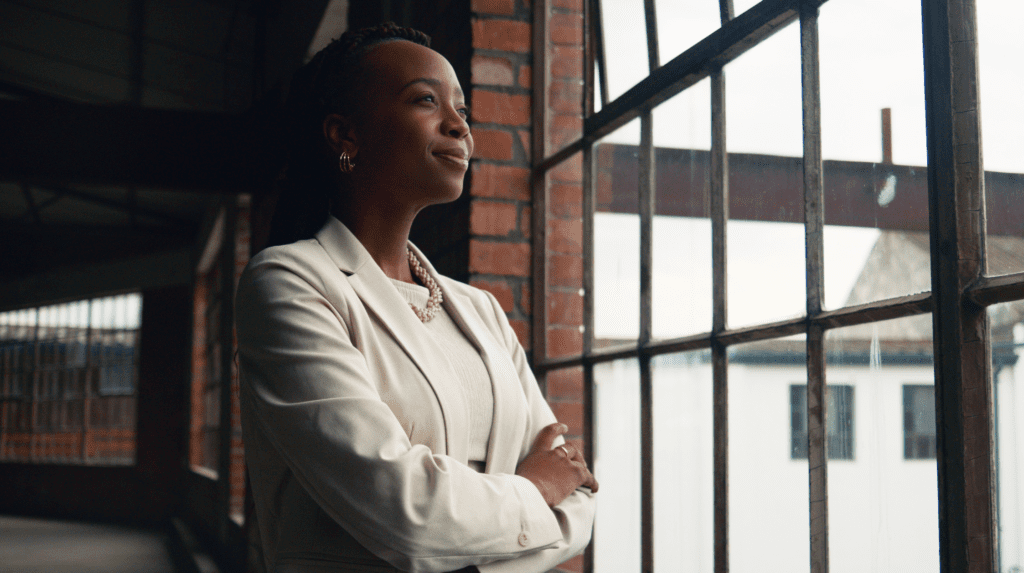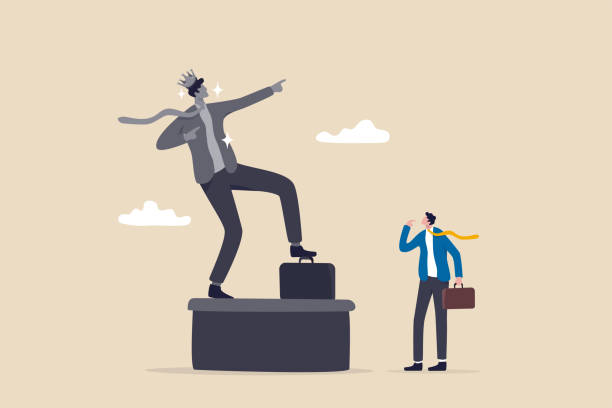
In our pursuit of self-worth and self-respect, we often wrestle with the intricate concepts of dignity and pride. While these ideas are intertwined, they each carry a unique weight that can be difficult to distinguish. Recognizing the fine line that separates dignity and pride is crucial for understanding their significance in our lives. This article will delve into the interplay between dignity and pride, examining their delicate balance and impact on our choices and behaviors. By clarifying these distinctions, you can navigate situations where they may conflict, make thoughtful decisions, and cultivate a deeper sense of fulfillment, empowering you to take control of your life. (Estimated reading time: 11 minutes)
“Dignity is a value that creates irreplaceability.”
– Immanuel Kant
Dignity is a term that resonated deeply with me during my formative years. It is a concept that transcends cultures and generations as a virtue often extolled by political figures, religious leaders, and humanitarians. It urges us all to lead lives of ethical and compassionate significance.
A well-known quote about dignity comes from Martin Luther King Jr., who stated, “One’s dignity may be assaulted, vandalized, cruelly mocked, but it can never be taken away unless it is surrendered.”
As I learned more about the Civil Rights Movement in the United States, I came to understand that King’s message was both a rallying cry and a powerful reminder for his community to stand firm and recognize their value. He drew inspiration from brave figures like Rosa Parks, whose refusal to give up her seat on the bus to a white passenger while the service was still segregated exemplified dignity.
Parks’ act of defiance became a pivotal moment in history. She boldly stated, “I was not tired physically…No, the only tired I was was tired of giving in.” Her courageous decision that day was not planned but had significant repercussions and motivated local Black leaders, including Dr. Martin Luther King, Jr. Her powerful act of defiance stemmed from a deep-rooted sense of dignity.
Dignity differs from pride in that it isn’t reliant on external accomplishments or the validation of others. Instead, dignity reflects your self-perception and the self-respect you maintain by recognizing your intrinsic value as a person. It empowers you to treat yourself with respect and carry yourself with confidence, regardless of others’ opinions.
Understanding the nuanced differences between dignity and pride can be a transformative journey. It can illuminate the intricacies of human relationships and provide a deeper understanding of how they interact and affect our identity, behavior, choices, and relationship to the world. This understanding can lead to a more enlightened and introspective view of ourselves and others.
What are dignity and pride?

Dignity is a core element of who we are, while pride is a more fluid emotion that can change depending on the situation and how we perceive it. These definitions will help you more clearly distinguish between these two often confused terms.
Dignity
Dignity is a universal principle that represents the inherent value and worth that every person possesses. It embodies the core belief that everyone is entitled to respect, acknowledgment, and equitable treatment, no matter their situation or accomplishments.
Dignity is closely associated with ideas like honor, integrity, and self-worth. It is an essential quality found in everyone, reminding us of our shared humanity. When we discuss dignity, we highlight a universal principle that goes beyond cultural, religious, and social boundaries, affirming that everyone has the right to live with dignity and receive fair treatment.
Pride
Pride is a multifaceted emotion that emerges from our successes, abilities, and affiliations. It brings a sense of joy or fulfillment based on our achievements or those of people we relate to. Pride, in its positive form, can inspire us to strive for more and celebrate our cultural or national backgrounds or the challenges we’ve overcome.
Unlike dignity, which is innate and universal, pride often depends on outside influences and individual experiences. For instance, a person’s pride in their wealth or social status can lead to arrogance or an exaggerated self-image. While it can enhance our self-esteem and drive, it may also result in these negative outcomes.
How do dignity and pride play out in personal and social contexts?
Dignity is a powerful force in our personal lives that shapes our self-worth and empowers us to recognize our values. This self-recognition fosters respect. With this newfound strength, we can assert our rights and advocate for ourselves in various spheres, from personal relationships to work environments and social settings, bolstering our sense of agency. Dignity, therefore, is a cornerstone of healthy self-regard, providing a firm foundation for building self-esteem and confronting challenges with resilience.
Pride plays an important role in our personal lives as well. It can be a powerful motivator, inspiring us to reach our goals and strive for greatness. Feeling proud of our achievements brings a sense of purpose and satisfaction to our efforts. This feeling of personal pride can boost our confidence, pushing us to aim for even greater heights.
It’s imperative to strike a balance between pride and humility. An excess of pride can easily transform into arrogance. This shift can create rifts in our relationships and spark conflict with others, underscoring the need for caution and mindfulness in our pride.
On a societal level, dignity and pride are vital in building strong connections and fostering respect. A society that values dignity guarantees that everyone, no matter their background, receives fair treatment and respect. This creates a welcoming atmosphere where diversity is honored, and every person feels appreciated, highlighting the societal benefits of these personal attributes.
Communities that encourage pride in their cultural or national identity can motivate collaborative efforts and unity, driving social change and advancement. However, balancing this pride with recognizing others’ dignity is essential. This balance is crucial to prevent the rise of divisive nationalism or exclusionary behaviors, underscoring the need for a nuanced approach to societal pride.
The negative impact of excessive pride or lack of dignity

Excessive pride can bring about various adverse effects, both personally and socially. Here are the most prominent ones:
1. Strained relationships and isolation.
When people become too proud, they often develop a sense of superiority that can push others away. This arrogance makes it challenging to form genuine connections, as it can prevent individuals from empathizing with or valuing the experiences of those around them. However, it’s important to note that an inflated sense of pride may lead to an unwillingness to admit mistakes or learn from setbacks, which can block personal growth. Overcoming this barrier can lead to significant personal development and a deeper understanding of oneself and others.
2. Acceptance of mistreatment and disrespect from others.
A lack of dignity can lead to serious consequences. When people fail to acknowledge or value their own worth, they might tolerate mistreatment or resort to harmful behaviors. This absence of self-respect can show up in different ways, like remaining in unhealthy relationships, accepting unfair treatment at work, or sacrificing personal standards for others’ approval. By not recognizing their own dignity, individuals risk damaging their self-esteem and creating a poor self-image, which can trap them in a cycle of dissatisfaction and unhappiness.
3. Exclusionary practices, discrimination, and conflict.
In social settings, overbearing pride or a lack of dignity can result in negative behaviors and harmful social systems. When pushed to its limits, national pride can create exclusionary practices, discrimination, and tensions among different groups. Likewise, communities that do not prioritize the dignity of every individual may cultivate atmospheres of oppression, inequality, and injustice.
Acknowledging and tackling these issues is crucial to nurturing a culture that appreciates dignity and pride and encourages respect, understanding, and cooperation among all its members. It’s not just a matter of personal well-being but also the health and harmony of our communities.
Case studies: examples of people who exemplify dignity and pride
Exploring the lives of people who embody dignity and pride can offer meaningful insights into how these universal qualities appear in everyday life, reminding us that we all have the capacity to uphold them.
A notable example is Malala Yousafzai, a resilient advocate for girls’ education who has displayed incredible dignity despite facing significant challenges. After surviving an assassination attempt by the Taliban, Malala persisted in her fight for the right to education for all girls.
Her steadfast dedication to this cause showcases her deep understanding of dignity and the intrinsic value of every person as she bravely confronts oppression. Additionally, Malala’s pride in her accomplishments and identity as a Pakistani woman inspires countless others, illustrating that dignity and pride can coexist beautifully.
Another compelling example is Nelson Mandela, who embodied dignity and pride throughout his life. After enduring 27 years of imprisonment for his struggle against apartheid in South Africa, Mandela gained profound insights into the significance of dignity for every person. He dedicated himself to promoting reconciliation and equality, understanding that genuine dignity means honoring the rights and values of all individuals.
Mandela’s pride in his culture and identity was a powerful force that inspired his dedication to social justice, demonstrating how pride, when rooted in dignity, can be a potent catalyst for positive transformation.
How society promotes dignity and pride

Society significantly influences how we view dignity and pride. Various institutions, including schools, media outlets, and community groups, can support or challenge our ideas about self-worth and success.
By encouraging inclusive practices and creating spaces that honor diversity, society can help individuals recognize their own dignity and that of others. Achieving this demands a collective effort, where each of us takes responsibility to tackle systemic inequalities and guarantee that everyone has access to opportunities that validate their value.
This collective effort is what motivates us to make a difference. Education plays a crucial role in enhancing dignity and pride. By integrating teachings on respect, empathy, and self-esteem into their programs, teachers can help students acknowledge their own worth and take pride in who they are and what they achieve.
Schools can become environments that celebrate diversity, enabling students to value various cultures and viewpoints around them. This method nurtures personal dignity and fosters a sense of community and belonging, reinforcing that everyone has something valuable to offer.
Media representation holds a significant influence over how society views dignity and pride. By showcasing a variety of voices and experiences, the media can confront stereotypes and encourage a deeper understanding of living with dignity. When people see themselves positively represented in media stories, it profoundly impacts their self-worth and pride.
Conversely, negative representations can reinforce damaging stereotypes and undermine their dignity. Thus, it is vital to promote positive representation to cultivate a culture that honors both dignity and pride, paving the way for a fairer and more equitable society.
How to cultivate dignity and humility
Cultivating dignity is both an individual and collective effort. Here are five steps we can take to make it a reality:
1. Self-recognition: know your worth
Building a solid sense of self is crucial, and it starts with recognizing that everyone has inherent worth. When cultivated through self-reflection, positive affirmations, and establishing boundaries that respect your needs and rights, this understanding empowers you. Participating in activities that boost your self-esteem, like following your passions, can also strengthen your sense of dignity. Additionally, being around supportive and respectful people can significantly amplify your feelings of value and connection, further boosting your confidence.
2. Humility: support others in their success
Humility is not just about personal modesty; it’s about recognizing the interconnectedness of all our achievements. It’s essential for nurturing dignity and fostering a sense of community. While dignity focuses on recognizing one’s own value, humility helps people appreciate their achievements with grace and an awareness of their connection to others.
By embracing humility, we can acknowledge the success of others while valuing their worth. This harmonious approach promotes empathy and compassion, allowing others to see that their dignity comes not just from personal achievements but also from their relationships and positive impact on their community.
3. Spread the word: raise awareness through education
In addition to personal practices, cultivating dignity and humility within communities is vital. This can be done through educational initiatives and awareness campaigns highlighting respect, understanding, and equality.
Promoting open conversations about dignity and pride allows individuals to understand the pivotal role of these ideas in their relationships. By creating a space where dignity is valued, people are more inclined to adopt humility and acknowledge the common humanity that connects us all.
4. Practice empathy: engage in active listening
Taking the time to appreciate the perspectives and experiences of others is a key aspect of empathy. It helps foster a respect that acknowledges both our own dignity and that of others, nurturing a culture of appreciation that uplifts rather than diminishes. Active listening is a powerful tool in this process, making everyone feel heard and understood.
5. Navigate setbacks and conflict: reaffirm others’ dignity
Understanding the intricate balance of dignity and pride in relationships means knowing when these two ideas might conflict. For example, when someone faces criticism or challenges, their pride might feel at risk, resulting in defensiveness or retreat. In these moments, pausing to reaffirm one’s dignity can ease negative responses.
By connecting with their intrinsic value, people can tackle conflicts with a more balanced approach, supporting open communication and resolution.
Ultimately, the journey to understanding and balancing dignity and pride is both a personal and collective endeavor. By embracing your worth and recognizing the worth of others, you can create a more compassionate world.
This approach allows you to uphold the essential idea that everyone has the right to live with dignity while celebrating the accomplishments that fill you with pride. By finding this balance, you can foster a sense of fulfillment, connection, and shared humanity that enhances everyone’s lives.
All my best on your journey,
Seline

Questions for you: How can you tell the difference between dignity and pride? Is there someone you admire who represents these traits?
Did you like this post? Sign up below, and I’ll send you more awesome posts like this every week.

This is something I admit I have struggled with for some time. And for the longest…. I thought I was one of the few who did. It is refreshing to learn I am not alone and also to see that there are ways to balance and maintain a proper focus on the two in life. Thank you for taking the time to lay this all out for us so clearly.,
My friend, you are never really alone when dealing with something like this- so many of us have been here or in similar situations! Do not give up or lose heart; there are better time ahead!